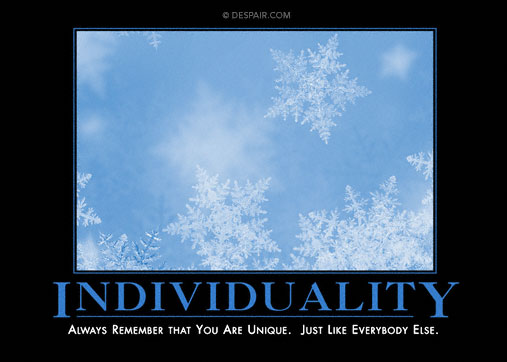See, this attitude, this is what I disagree with. You're taking this as basically an attitude of "this is hard, we want it to be easier for our kids, so we just won't make them learn it". And yeah, I've seen that attitude in education as well, and that I strongly disagree with. I just don't see removing cursive from the curriculum as evidence of that.
So, you agree that cursive writing is NOT too difficult for children to learn?
When you're referring to "getting children to write like adults" or the opposite, it appears to imply that you basically think that cursive is somehow innately "more mature" or "more grown up" than block writing. This, I disagree with entirely.
I asked some other adults about this. They, and I, felt like we accomplished something, that we were more "grown up" when we learned how to use cursive writing in the second grade. And yes, even now, if we see a handwritten note without knowing its author, if it's printed we assume it's from a kid, and if it's in cursive, we assume it's from someone older.
Your other arguments, about cursive being more useful, faster, etc, could easily be true for many people, and if that's the purpose for learning to write cursive, then I would not say their time is wasted. However, the underlying main reason that cursive seems to have been taught is because of this attitude that some people seem to have that it's "more mature" or whatnot.
Cursive writing
is more efficient. It flows better and is quicker. One tends to write out words rather than letters when using cursive.
That idea, primarily, is what has been rejected here. That is why many of us consider learning cursive to be a primarily pointless exercise. It's not (just) because we think learning how to type faster and better from an earlier age is likely to be more useful to a child's education (we do), it's much more that we don't see any differences in the inherent quality of writing in cursive rather than in block print.
Why are keyboarding and hand writing mutually exclusive? Why can't students learn both? I can write and keyboard equally well, as can many other people.
We don't think it's "more mature" or "more adult-like" to write with loopy handwriting and connected letters, we mostly just think that's an alternative option, in the same way that typing a document in Times New Roman isn't inherently "more mature" or "more adult-like" than typing it in Helvetica.
No, the skill is not like choosing a font style. (Although if you were choosing between
Comic and Times New Roman you might make an argument.

)
Well, to be quite blunt, for a great many people, yes. Of course, that ignores the fact that for a great many people, the "Renaissance Man" concept was never "alive" to begin with. Even in the actual Renaissance, you had some wealthy folks who already had enough money to survive and could dabble in whatever subjects interested them, at their leisure, without needing to worry about silly things like "bills" and "jobs" and the like. And then you had the rest of the commoners, the plebeians who had to actually work to survive, and since living conditions relative to now were quite shitty, they didn't even have a choice about what work they did, because they only had the opportunity to learn a few trades, and that's what they ended up doing.
For anyone above the subsistence level of survival, there are opportunities for learning more than basic survival skills. In the USA, there are free libraries. In the home, one can watch History Channel instead MTV. Instead of buying a video game, how about buying language software, or learning a craft?
If you study the
people, not the just the events, of history, you'll discover that lots of common folk had more interests and skills beyond what was needed for survival. Yes, they often had to struggle for those opportunities but they got as much as possible.
Since we in America in general don't live in "shitty" conditions, we
can take advantage of even more opportunities. If the schools offer more subjects without charging the families for them, why not take advantage of the opportunities? Why instead say, "Oh, that's too much, and I can't get a job with that skill"?
Besides, how do you
really know what one extra skill may be the one that gives you that extra edge at job interview time?

People can still learn for learning's sake, but that doesn't mean that we should cram the core curriculum for every student in a county/state/country with every conceivable subject ever.
It's not crammed in; it's already there.
As it currently is, simply with the advancement of knowledge that naturally occurs, the education an average high schooler gets today probably contains roughly as much information as a college undergraduate would have received 50 years ago.
I'm sorry but if you research it, it's the opposite. Other than technology that's occurred during that time, students in the past learned more as high school graduates than most college undergraduates do now.
I graduated from high school in 1969. It was a public high school, and I was in the general (non-college) track. Now I work in college classes. Most of the core classes at the college cover subjects that I took in
junior high school or even elementary school. Many of the second year college classes cover information that I got in high school. People a generation older than me notice an even greater gap.
More and more testing is simple multiple choice or true/false format. In the "olden" days, most of my tests were at the least short answer sentences. Most required writing paragraphs, except math subjects ("show the work").
I grant you that there were no computer classes back then. No one had to learn how to use a computer in the schools of the 1940's-1960's.
Those students had to
invent the computers,
design the software, and
set up the networks. Somehow they did that even though they learned cursive writing instead of keyboarding.
My dad attended a one-room school house in Indiana farm country during the Great Depression. With that "common man" education, he was able to challenge and pass several college courses. He got his four-year degree in electrical engineering in three years. He went on to work for Bell Labs, Lockheed, NAVAIRSYSCOM, and NASA, among others. He had patents (including some nice royalty checks), and developed many innovations for industry, the military, and the space program. He never took one keyboarding class.

I've subbed in public schools, so I know what they're teaching. I haven't seen any "advancement of knowledge." It seems to take longer to cover
less information, and little seems to be retained from one year to the next.






